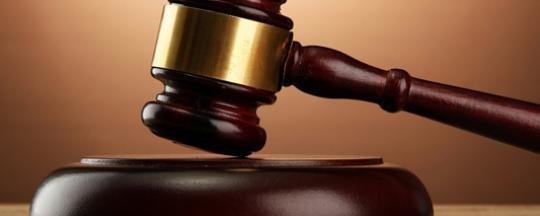Families of victims of the civil war in South Sudan are demanding justice and establishment of a Hybrid Court to try war criminals in order to avoid recurrence of such atrocities in future, according to interviews carried out yesterday in South Sudan.
This comes after President Salva Kiir announced his opposition to implementation of Chapter 5, Article 3 of the Agreement on the Resolution of the Conflict in South Sudan, which mandates the establishment of a Hybrid Court to try war criminals.
Kiir said in an opinion article in The New York Times that he does not want the court. Vice President Riek Machar’s name was also attached to the article as a co-author but subsequently his spokesman denied any involvement in authoring it and distanced himself from the position. Kiir’s spokesman confirmed, however.
Kiir wrote in the article that South Sudan “needs truth, not trials.”
Reacting to this, Reverend William Tut, a displaced person inside the UN camp in Bor town, told Radio Tamazuj that trials of war criminals will give voice to the victims. William asked who would be held accountable for the killing of innocent children inside the UN camp in Bor town if there are no trials. He added that any attempt to dodge justice will encourage recurrence of such crimes in the future.
“Yes, peace has come, but if those people are left like that, they will continue committing crimes, even during peace because they will not be held accountable,” said Tut.
Elsewhere, in Malakal, several displaced people inside the UN camp voiced their support for the establishment of a Hybrid Court to try war crimes, saying justice should serve as compensation for the victims and their families. Aban Yor, an elderly man sheltering inside the UN camp in Malakal, said those who committed crimes do not want the Hybrid Court. He stressed that the court must be established to investigate and bring justice.
“The Hybrid Court must be established, they should be taken to trial, those who committed atrocities do not want to be held accountable, but this court must be set up by all means,” said Yor in an interview with Radio Tamazuj.
Others echoed these sentiments. David Mayen, commenting on Radio Tamazuj’s Facebook page wrote, “Kiir and Dr Machar killed South Sudanese (through command responsibility) and want to exempt themselves and their officers from prosecutions! What a brewing injustice!”
“Crime is a crime, who is above the law?” said Robert S.
“Kiir and Riek must face the law. they have killed many South Sudanese in their power struggle,” said David B.
“Lets them face the court because they killed citizens for their own benfit not public benefit, the country have died economically, socially and politically,” said Maluach M.
Jiggo, another commenter on the Facebook said, “It is not surprising since they are the very leaders who killed South Sudanese. They cannot allow the Hybrid court to be established now but what I know is they will one day face ICC instead. I believe we shall get a new president who will make them pay for the crimes they committed.”
Some voices were opposing the hybrid court, however. Akol A. said, “President Kiir was elected by all South Sudanese people and he don’t kill a single person, to go to the Court which laws, and whose laws is that?”
An observer of South Sudan’s political situation, Dr. Luka Biong, former Director of the Center for Peace and Development Studies at University of Juba, told Radio Tamazuj that the peace partners had to carry out investigations on abuses and verify reports released by the United Nations and other human rights groups. According to Luka, Kiir and Machar should set up national investigation committees in an attempt to establish local courts.
“They are can set up committees and courts to try those who committees crimes, personally, I see that it can be a national initiative to replace the Hybrid Court, but you cannot reject it altogether because you have already signed to it,” said Biong.
“We can make some procedures on reconciliation, while we are carrying out some steps within internal institutions and we say we have taken some steps. Even Riek can carry out some investigations from his side so that a national court is established so that it can look into these issues,” he added.



